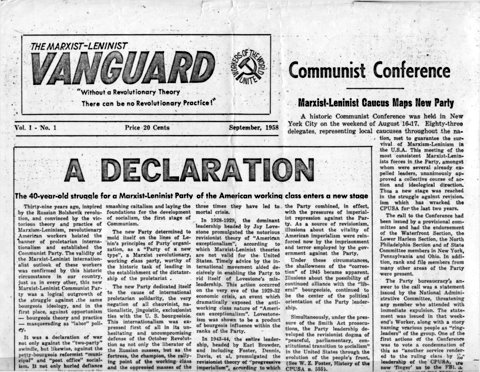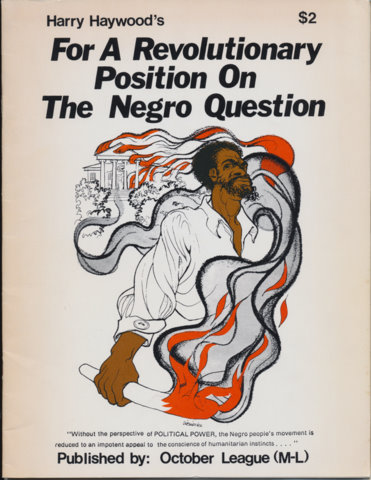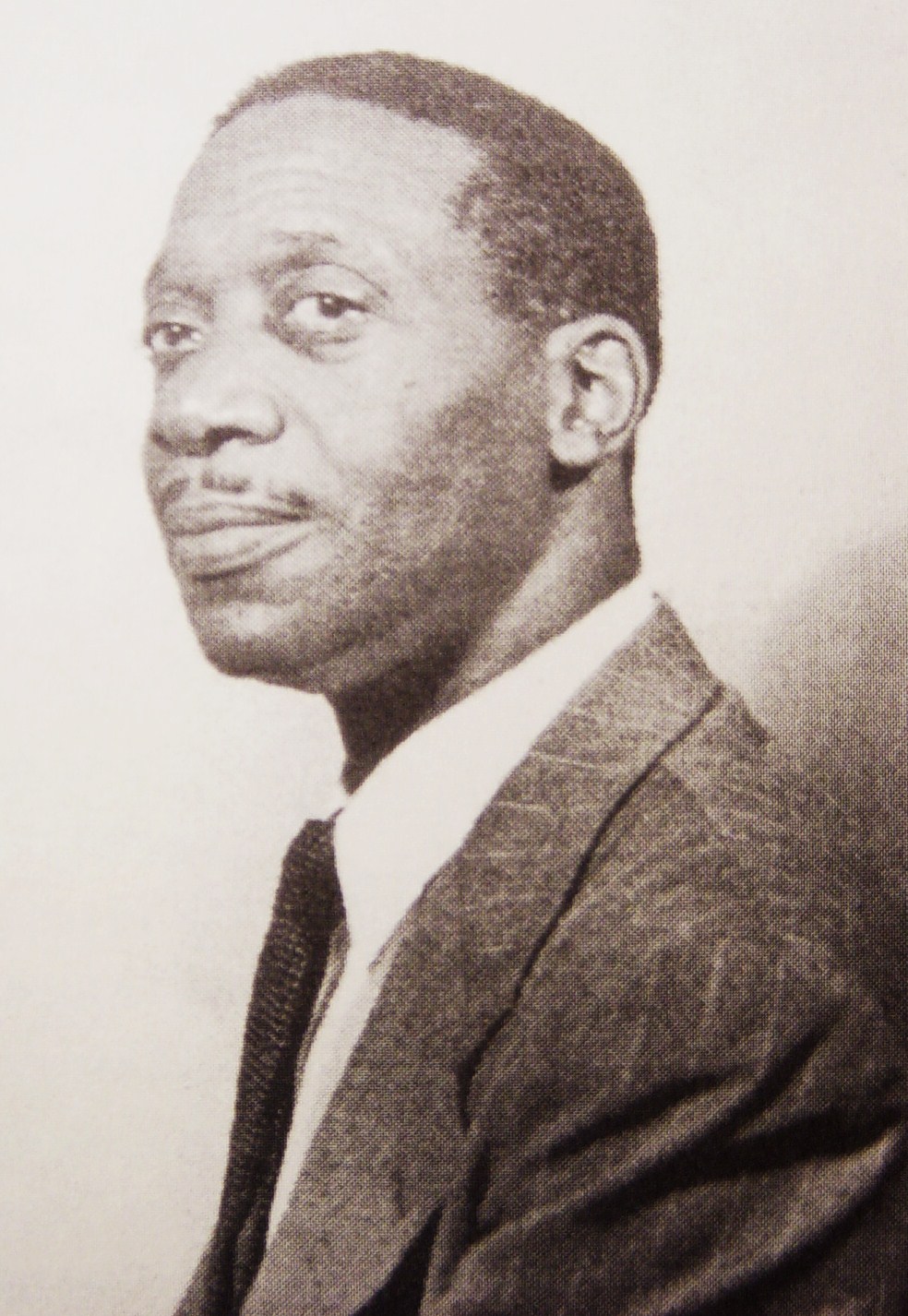The story of the second wave of U.S. anti-revisionism is largely the history of the Provisional Organizing Committee to Reconstitute the Marxist-Leninist Communist Party in the United States (POC).
A number of events, commencing in 1956, precipitated a major upheaval in the world Communist movement. These included the 20th Congress of the Communist Party of the Soviet Union at which Nikita Khrushchev delivered his famous secret speech on Stalin and the events in Hungary leading up to and including armed Soviet intervention.

In the Communist Party of the United States, these events exacerbated an already serious on-going crisis, resulting from the repression that communists experienced under McCarthyism, the Smith Act trials of Communist leaders, and their expulsion and ostracism from labor unions and other organizations. The debate over how to respond to these developments divided U.S. Communists into four groups:
1. The “Right” represented by John Gates, an editor of the Daily Worker newspaper, that wanted to fundamentally and critically re-examine Communist theory and practice and loosen the ties binding the CPUSA to the Soviet Union;
2. The “Center” led by Eugene Dennis, the General Secretary of the CPUSA, which took a middle position on most issues and championed “unity,” of the different factions and groupings;
3. The “Soft-left” led by William Z. Foster and Ben Davis, which rejected fundamental reforms of Party theory and practice, remained committed to unconditional support for the Soviet Union and the CPSU, but frequently allied itself with the “center,” forces;

4. The “Hard-left,” Marxist-Leninist Caucus centered among Black and Puerto Rican communists and on the waterfront, that felt that the Party reformers was essentially revisionists and that the center and soft left was conciliating rather than actively combating them.
In the aftermath of the CPUSA’s 16th Convention in 1958 and the consolidation of a new Center-Soft-left leadership group, a campaign was launched against the Marxist-Leninist Caucus and its supporters. In response, the Provisional Organizing Committee to Reconstitute a Marxist-Leninist Communist Party in the United States (POC) was born. Perhaps its most well known member was Harry Haywood, but it also included individuals such as Theodore Allen, Nelson Peery, and Noel Ignatin. Unfortunately, soon after its founding the POC underwent a number of debilitating splits and, by 1962, it was a shell of its former self. In 1968, what remained of the POC renamed itself the American Workers’ Communist Party.
During this same period, another small anti-revisionist group challenged Khruschev and the post-Stalin Soviet leadership and defended Stalin’s record and legacy. This was the Communist League, a small group in New York City which published a newsletter by the name of Turning Point. The Communist League had its origins in anti-revisionist communist groupings that arose in 1946 in the wake of the reconstitution of the CPUSA (pre-1956 documents from these groups can be found in our “First Wave, 1946-1958” page). This Communist League should not be confused with the totally different Communist League which emerged in California in 1966 out of the POC and went on to become the Communist Labor Party.
| Index of topics covered in this section (by alphabetical order) |
| American Workers’ Communist Party |
| Background CPUSA Materials |
| Communist League |
| Provisional Organizing Committee to Reconstitute a Marxist-Leninist Communist Party in the United States |
Family Tree Chart of U.S. Anti-Revisionism, 1956-1977 by the Communist Workers Group (Marxist-Leninist)
The Degeneration of the CPUSA in the 1950s by Harry Haywood
Why the CPUSA didn’t resist Khrushchovite revisionism
The CPUSA and Black Workers in the 1950s by Paul Elitzik
Negro Liberation by Harry Haywood
On the Report of the Central Committee of the Communist Party of the Soviet Union Delivered by Comrade Khrushchev to the Twentieth Party Congress by a CPUSA trade union section organizer [from Red Papers #7, published by the Revolutionary Communist Party]
Proceedings (Abridged) of the 16th National Convention of the Communist Party, U.S.A., May 1957

Two Roads for American Communists by Milton Palmer [Theodore W. Allen]
For a Revolutionary Position on the Negro Question by Harry Haywood
Our Reply to the Conciliators of Revisionism
COMMUNIST CONFERENCE – Marxist-Leninist Caucus Maps New Party
Marxism or Revisionism? Main Political Report to the POC Founding Conference
Immediate Organizational Tasks of the Marxist-Leninist Caucus in the C.P.U.S.A. by A. Marino [Angel Rene Torres]
Letter from Harry Haywood to the POC
FBI Report on the POC Fifth National Conference, September 1-2, 1962
American CP Heads Issue Decree for New Purge of Party by Herman Chauka
Group Expelled From CP Holds National Parley by Lillian Kiezel
The New Vanguard Group And the Communist Party by Lillian Kiezel
A Veteran Communist Speaks... On the Struggle Against Revisionism by Admiral Kilpatrick
A Veteran Communist Speaks by Joe Dougher
The POC: A Personal Memoir by Noel Ignatin
Main Political Report to the Second Congress, American Workers’ Communist Party
A Post-Mortem on the “Lumpen Revolution”
Nationalism in “Marxist” Disguise
“Marxism-Leninism” – A Reactionary Theory [on Huey Newton and Eldridge Cleaver]
Towards A New Marxist-Leninist Communist Party
Against the Revisionism of the 20th Congress
Proletarian Revolution and Renegade Khrushchev (In Defense of Stalin)
First Aid For Communists Suffering From Shock